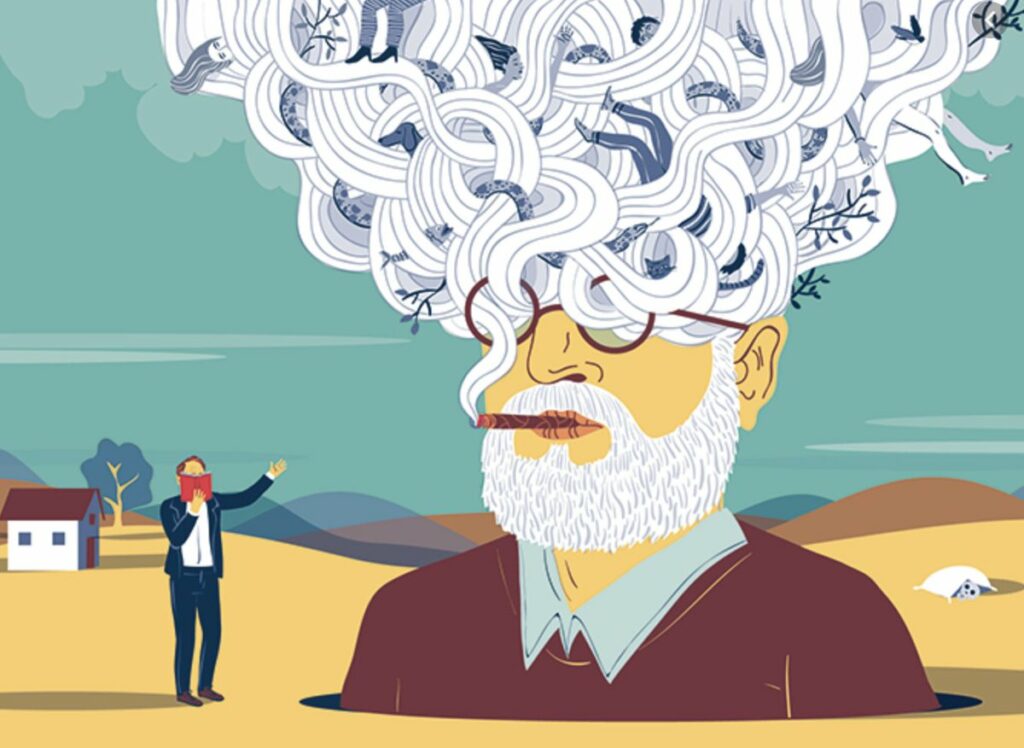Do you ever wonder what your dreams mean? Many people do! Dream analysis is a popular topic of discussion. There are many different interpretations of dreams, and it can be interesting to explore what they might mean. In this blog post, we will discuss the basics of dream analysis. We will cover the most common symbols that appear in dreams.
Contents
What Does Dream Analysis Mean?

Dream analysis is the process of interpreting the meaning of dreams. It is best known for its use in psychoanalysis, but it can be applied to any dream. There are many different approaches to dream analysis, but they all share the same goal: to understand the symbolism and meaning of dreams. Dream analysis works on the principle that the symbolic representation tells a lot about a person’s buried unconscious. Dream analysis is also viewed as a therapeutic tool to examine a person’s underlying needs and wants which are often repressed.
History Of Dream Analysis
Before being understood and studied as a science, dream analysis found its roots in cultural practices. Ancient Greek physicians like Aristotle and Artemidorus believed dream symbolism can be used to understand a person’s character. Dreams were thought of as a message from God, creating a huge significance in religious aspects of people’s lives.
Progressing in the 19th and 20th centuries, renowned psychologists like Carl Jung and Sigmund Freud interpreted dream analysis from a new perspective. They started to see dreams as a way of understanding the human psyche. Freud proposed that dreams are connected to our repressed desires. These desires are primarily sexual. While Jung believed in different interpretations based on various symbolism to source creativity and even indicate future proceedings.
Use Of Dream Analysis In Therapy
Analysis of dreams is an important component of various forms of therapy.
- Psychoanalysis (Sigmund Freud) utilizes the tool of free association. Here, the client is encouraged to talk freely about whatever they have in mind. These talks represent inner conflicts, unconscious desires, and wish fulfillment.
- Jungian Analysis focuses on unlocking the messages behind their dreams. Jung believed that if the interpretation of dream symbols doesn’t resonate with the client’s circumstances then it isn’t helpful
- Gestalt Therapy says that dreams are existential messages we send to ourselves. These messages are believed to make our unconscious come alive.
- Existential Art Therapy explores our dreams through imagery. The pictures in our dreams get explored, learned, and interacted with to gain meaning.
Symbolism In Dream Analysis

Any symbol could mean anything depending upon different people’s different circumstances. However, psychologists and researchers have observed some commonly recurring symbols. These are mostly associated with similar emotions. Some common examples are:
- Falling is commonly related to anxiety, loss, or the fear of losing control.
- Getting chased further expresses the feeling of threat or danger.
- Babies can indicate either an inner desire to have a child; or the long-suppressed need of feeling vulnerable and loved.
- Water is often interpreted as the reflection of the unconscious mind. Herein, calm pools reflect inner peace. Meanwhile, choppy ripples may suggest unease and tension.
- Teeth falling out marks the fear of getting old or losing physical attractiveness.
- Roads can be taken as literal manifestations of further new opportunities or pathways.
- Vehicles reflect the feeling of control; whether you driving the vehicle yourself or seeing somebody else take charge of your ride can reveal a lot about your perception of control.
- Killing is not a representation of wanting murder, rather it can be about ‘killing’ parts yourself that you don’t like.
Strengths Of Dream Analysis

One of the main strengths of dream analysis is that it can help you to understand your thoughts and feelings. The unconscious mind explores itself. They can prove to be very powerful tools for self-discovery. Furthermore, they can also be used to understand other people. By analyzing someone’s dreams, you can gain insight into their thoughts and feelings. This can be helpful in relationships, work, or any other area where you interact with others.
Limitations Of Dream Analysis
While having some definite benefits, dream analysis does have certain limitations. One of the main limitations is that it is often difficult to remember dreams. Dreams can be fleeting and elusive, and they often disappear from our memory as soon as we wake up. This can make it difficult to accurately analyze a dream.
Another drawback is that it can be very open to interpretation. Dreams are often symbolic, hence, there is no one correct interpretation. This further means that different people can interpret the same dream in different ways.
Lastly, it can be time-consuming and require a lot of effort. It can also be difficult to find the time to keep a dream journal and track down symbols and meanings. And, if you’re not careful, you could end up spending more time analyzing your dreams than actually enjoying them.
Conclusion
Dream analysis can be a helpful tool for self-discovery and understanding yourself and others. Don’t be afraid to dive into the world of dream analysis! Who knows what you might further discover about yourself. This will moreover give you a good starting point for understanding your dreams better.
A Word From Therapy Mantra
Your mental health — Your psychological, emotional, and social well-being — has an impact on every aspect of your life. Positive mental health essentially allows you to effectively deal with life’s everyday challenges.
At TherapyMantra, we have a team of therapists who provide affordable online therapy to assist you with issues such as depression, anxiety, stress, workplace Issues, addiction, relationship, OCD, LGBTQ, and PTSD. You can book a free therapy or download our free Android or iOS app.


